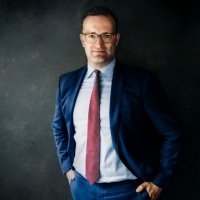Phase Two of ‘Vaccine Diplomacy’: Expanding Global Vaccine Production Capabilities
Submit a question
Throughout the pandemic, regions such as Latin America have been almost entirely dependent on imported COVID-19 vaccines. Initially, that dependency delayed vaccine campaigns, with significant public health consequences. Later, it opened opportunities for countries such as China and Russia, and later the United States, to improve diplomatic relationships through the sale and donation of shots, a strategy sometimes referred to as “vaccine diplomacy.”
As the pandemic persists, and waning immunity and new viral variants increase the importance of booster shots, many governments are emphasizing the importance of transitioning to a new phase of “vaccine diplomacy”: a global expansion of vaccine development and production capabilities. That transition would reduce the likelihood of shortages in the near future and in any future pandemic, and provide economic benefits to developing economies. In Latin America, for example, Argentina is already producing Russia’s Sputnik vaccine and Chile plans to manufacture China’s Sinovac jabs.
Should U.S. and European producers of highly effective mRNA vaccines invest more in overseas production? What are the public health and geopolitical implications of Chinese and Russian vaccine production in the developing world? What is the status of European Union and World Health Organization efforts to build vaccine development and production capabilities in Latin America and other developing regions? What are the strengths and barriers in countries such as Argentina, Brazil and Mexico?
To learn more, please join the Wilson Center on Thursday, September 29, 2022, 10:00 am to 11:00 am ET for a dialogue on Phase Two of “vaccine diplomacy.”
Moderator

Panelists




Hosted By

Latin America Program
The Wilson Center’s prestigious Latin America Program provides non-partisan expertise to a broad community of decision makers in the United States and Latin America on critical policy issues facing the Hemisphere. The Program provides insightful and actionable research for policymakers, private sector leaders, journalists, and public intellectuals in the United States and Latin America. To bridge the gap between scholarship and policy action, it fosters new inquiry, sponsors high-level public and private meetings among multiple stakeholders, and explores policy options to improve outcomes for citizens throughout the Americas. Drawing on the Wilson Center’s strength as the nation’s key non-partisan policy forum, the Program serves as a trusted source of analysis and a vital point of contact between the worlds of scholarship and action. Read more


Argentina Project
The Argentina Project is the premier institution for policy-relevant research on politics and economics in Argentina. Read more


Mexico Institute
The Mexico Institute seeks to improve understanding, communication, and cooperation between Mexico and the United States by promoting original research, encouraging public discussion, and proposing policy options for enhancing the bilateral relationship. A binational Advisory Board, chaired by Luis Téllez and Earl Anthony Wayne, oversees the work of the Mexico Institute. Read more


Brazil Institute
The Brazil Institute—the only country-specific policy institution focused on Brazil in Washington—aims to deepen understanding of Brazil’s complex landscape and strengthen relations between Brazilian and US institutions across all sectors. Read more


Global Europe Program
The Global Europe Program is focused on Europe’s capabilities, and how it engages on critical global issues. We investigate European approaches to critical global issues. We examine Europe’s relations with Russia and Eurasia, China and the Indo-Pacific, the Middle East and Africa. Our initiatives include “Ukraine in Europe”—an examination of what it will take to make Ukraine’s European future a reality. But we also examine the role of NATO, the European Union and the OSCE, Europe’s energy security, transatlantic trade disputes, and challenges to democracy. The Global Europe Program’s staff, scholars-in-residence, and Global Fellows participate in seminars, policy study groups, and international conferences to provide analytical recommendations to policy makers and the media. Read more


Science and Technology Innovation Program
The Science and Technology Innovation Program (STIP) serves as the bridge between technologists, policymakers, industry, and global stakeholders. Read more
